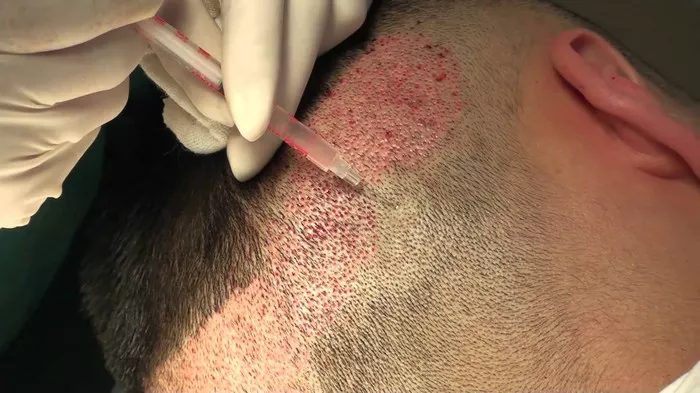Hair transplant procedures have become increasingly popular in recent years as an effective solution for individuals seeking to restore a fuller head of hair. While the process is generally well-tolerated, many prospective patients wonder about the potential pain associated with the surgery and how long it might last. In this article, we aim to provide a comprehensive guide on the duration of pain after a hair transplant.
The Surgical Process
Before delving into the postoperative experience, it’s crucial to understand the hair transplant procedure itself. The most common techniques include Follicular Unit Transplantation (FUT) and Follicular Unit Extraction (FUE). During FUT, a strip of skin is removed from the donor area, and individual hair follicles are transplanted to the recipient site. FUE, on the other hand, involves extracting individual follicular units directly from the donor area. Both methods require precision and skill, often resulting in minimal discomfort during the surgery itself.
Immediate Postoperative Period
Immediately after a hair transplant, patients may experience some discomfort and mild pain. This is a natural response to the surgical process, and most individuals find that the pain is manageable with prescribed pain medications. The severity of pain can vary from person to person, with some reporting only mild discomfort while others may experience more noticeable sensations.
First Few Days: Managing Discomfort
In the first few days following the surgery, it is common for patients to experience some level of pain, swelling, and tenderness in the treated areas. This discomfort is a result of the body’s natural healing response and is generally part of the recovery process. Patients are typically advised to take prescribed pain medications as directed by their surgeon to manage any postoperative pain effectively.
One Week Mark: Subsiding Pain
As the initial days pass, many patients notice a significant reduction in pain and discomfort. The body begins to heal, and the need for pain medication often decreases. However, it’s essential to follow the postoperative care instructions provided by the surgeon diligently. This may include avoiding strenuous activities, refraining from scratching or picking at the treated areas, and using any prescribed topical medications.
Two Weeks Post-Surgery: Further Improvement
By the end of the second week, most patients experience a substantial reduction in pain and discomfort. The body continues to heal, and any residual swelling or tenderness typically diminishes. At this point, individuals may be able to return to their regular daily activities, although it’s advisable to refrain from vigorous exercise and activities that may put strain on the scalp.
Beyond Two Weeks: Individual Variations
While the majority of patients find that their pain has significantly subsided after the initial two weeks, individual variations exist. Some individuals may continue to experience mild discomfort for a slightly longer period, while others may feel completely back to normal. It’s crucial to communicate openly with the surgeon about any lingering pain or concerns, as they can provide personalized advice based on the patient’s specific situation.
Long-Term Outlook: Residual Discomfort
In the long term, the vast majority of patients no longer experience pain related to the hair transplant after the initial recovery period. However, some individuals may notice mild sensations, such as occasional itching or sensitivity, in the treated areas. This is generally not categorized as pain but rather as a mild discomfort that tends to resolve over time as the scalp fully heals.
See Also: [Reveal!] The Cost of a hair transplant for traction alopecia
Conclusion
In conclusion, the duration of pain after a hair transplant is a variable experience that depends on individual factors and the specific details of the surgical procedure. The immediate postoperative period is typically associated with the most significant discomfort, which gradually subsides over the first few weeks. While the vast majority of patients find that their pain is well-managed with prescribed medications and diminishes with time, individual variations exist. Open communication with the surgeon and strict adherence to postoperative care instructions are key factors in ensuring a smooth and comfortable recovery process.


